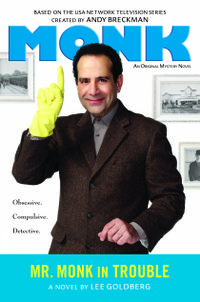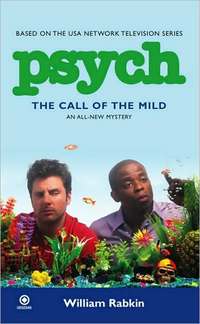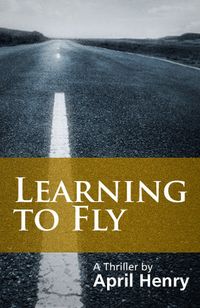I've had lots of emails from readers who've spotted some of my western related "in-jokes" in MR. MONK IN TROUBLE. So far, only one reader has caught most of them, and that was Mike Galbreath. He caught all of these (if you want to find them yourself, DON'T READ ANY FURTHER):
Abigail Guthrie — an homage to A.B Guthrie Jr., author the "The Way West."
Artemis Monk — an homage, of course, to Artemis Gordon, from "The Wild, Wild West"
Harley Kelton — an homage to the late Elmer Kelton, one of my favorite authors.
Billy Crider – an homage to my friend, author Bill Crider
Edward Randisi – an homage to western author Bob Randisi
Bob Gorman – an homage to my friend, and enthusiastic supporter, author Ed Gorman
Doris Thurlo – an homage to my friends, Aimee and David Thurlo, authors of the Ella Clah novels.
George Gilman – an homage western author George G. Gilman, creator of "EDGE"
Jake Slocum — An homage to the hero of 300 western novels
Ralph DeRosso – an homage to western pulp writer H.A. DeRosso
Leonard McElroy — Another homage to Elmer Kelton. Lee McElroy was Kelton's pseudonym and Kelton grew up on the McElroy ranch
Clifford Adams — an homage to western writer Clifton Adams
The McMurtry mine — a homage to Larry McMurtry
Sheriff Wheeler — a little hat-tip to western author Richard S. Wheeler, who was a big help on the book.
Parley Weaver — an homage to the two actors who played Chester on GUNSMOKE, Parley Baer (radio) and Dennis Weaver (t.v.)
Bart Spicer — an homage to the author of of "Blues for the Prince," and a couple of fine westerns.
Bogg's Saloon — a hat-tip to western author Johnny Boggs
Lydia Wilder — an homage to author Laura Ingalls Wilder
Elmore Portis — an homage to authors Elmore Leonard (3:10 TO YUMA) and Charles Portis (TRUE GRIT)
Pete Cooley — a hat-tip to western actor Spade Cooley
Jonas Dehner — a hat-tip to actor John Dehner played Palladin on the radio and guest starred in just about every TV western that was ever made.
Mike Galbreath was very, very good, but he missed a few references. Here's what he didn't spot:
Manny Fiekema — was an homage to western writer Fieke Fiekema, who changed his name to Frederick Manfred. He was the author of LORD GRIZZLY and RIDERS OF JUDGEMENT.
Gator Dunsen — an homage to a character John Wayne once played (named Dunsen, not Gator)
And, finally, the entire set-up in Trouble with Sheriff Kelton is a spoof of Robert B. Parker's Jesse Stone, an alcoholic cop who becomes a police chief in Paradise, a fictional town outside of Boston (Bill Crider is the only one so far to catch that one).
UPDATE: I forgot about:
Lute Asper – an homage to Quint Asper, the character played Burt Reynolds on GUNSMOKE
Alvie Bartell – an homage to Harry Bartell, a character actor who often appeared on the GUNSMOKE radio show.








